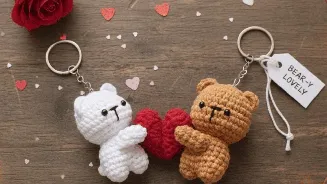Understanding Relationship Dynamics
Relationships, whether with family, friends, or romantic partners, form the bedrock of our lives. A clear understanding of these dynamics is the first
step towards building and maintaining healthy connections. Effective communication serves as the cornerstone of any successful relationship. It means expressing your needs and feelings openly and honestly, while also actively listening to others. Furthermore, empathy is crucial; the ability to understand and share the feelings of another person. Cultivating empathy helps bridge gaps, resolve conflicts, and foster a deeper understanding between individuals. Boundaries, the unspoken rules that define how we interact with each other, are equally important. Setting healthy boundaries, which may include saying no to things that drain your energy, is essential for maintaining your emotional well-being and fostering mutual respect. Recognizing the different stages of a relationship, whether it's the exciting initial phase or a more established period, will help navigate the inevitable challenges and changes that come with time. Lastly, knowing how to handle conflicts is critical; learning to address issues constructively, focusing on solutions rather than blame, and practicing forgiveness all contribute to healthier relationships.
Communication: The Foundation
Communication skills are essential for building and maintaining strong, positive relationships. Effective communication goes beyond merely exchanging words; it involves truly hearing and understanding the other person's perspective. Active listening means paying attention, asking clarifying questions, and showing genuine interest in what is being said. Honesty is a cornerstone of effective communication. Being honest, both with yourself and others, is key to building trust and preventing misunderstandings. Openness also plays a vital role in relationship satisfaction. Sharing your thoughts, feelings, and experiences allows you to connect with others on a deeper level. Nonverbal cues, like body language and facial expressions, can be just as important as the words we use. Being aware of these cues, both in ourselves and others, can prevent misinterpretations and improve communication. Sometimes, communication styles clash. Being aware of different communication styles and adapting your style, where possible, helps avoid conflict and strengthen connections. Finally, regular and meaningful conversations that are free of distractions are important for maintaining open lines of communication and fostering a sense of closeness.
Conflict Resolution Strategies
Conflicts are inevitable in any relationship, and how these issues are handled determines their impact. The first step involves acknowledging the conflict. Rather than avoiding the issue, recognize it and be willing to address it. Next, focus on understanding the root cause of the conflict by exploring the underlying issues and emotions. Effective communication becomes critical during conflicts, and so does the ability to actively listen to the other person’s perspective. The objective should be to understand their concerns and feelings. During a conflict, avoid getting defensive. Defensiveness tends to escalate the situation, and instead, try to remain calm and composed. Collaboration should be your approach, focusing on finding solutions that meet everyone’s needs. Compromise is often necessary. Acknowledge that sometimes, you may not get exactly what you want, and you should be willing to meet the other person halfway. Practice forgiveness. Holding onto grudges only damages the relationship. Forgiveness helps to heal the wounds and allows you to move forward. Lastly, if the conflict is too difficult to resolve on your own, consider seeking help from a therapist or counselor. A neutral third party can offer guidance and facilitate constructive dialogue.
Prioritizing Mental Well-being
A healthy mind is essential for building and sustaining healthy relationships. Self-care involves activities that support your physical, emotional, and mental health. Engage in activities that bring you joy and relaxation, and remember to prioritize your needs. Mindfulness practices, such as meditation and deep breathing exercises, can help you manage stress and improve emotional regulation. Recognize and manage stress. Identify the sources of stress in your life and find healthy ways to cope with them, such as exercise or hobbies. Cultivate self-compassion. Treat yourself with the same kindness and understanding that you would offer to a friend. Establish a support system. Surround yourself with people who uplift and support you. Set healthy boundaries. Learn to say no to commitments that overwhelm you and protect your time and energy. Seek professional help when needed. If you are struggling with your mental health, do not hesitate to seek therapy or counseling. These professionals offer strategies to cope with challenges and improve mental health. A healthy mind, cultivated through proactive care and the right support, allows you to approach relationships with greater resilience, positivity, and clarity.












